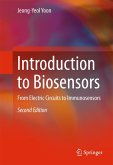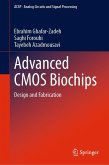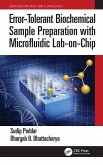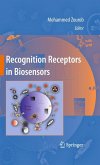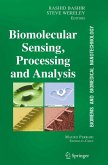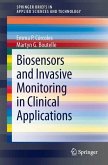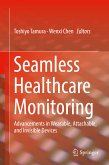Provides electrical engineers with the specific knowledge they need to understand biological sensing modalities
Provides biomedical engineers with a solid background in circuits and systems
Includes complete coverage of temperature sensors, electrochemical sensors, DNA and immunosensors, piezoelectric sensors and immunosensing in a micofluidic device
Introduction to Biosensors: From Electric Circuits to Immunosensors aims to provide an interdisciplinary approach to biosensors that will be appreciated by biomedical, biological, and electrical engineers.
Dieser Download kann aus rechtlichen Gründen nur mit Rechnungsadresse in A, B, BG, CY, CZ, D, DK, EW, E, FIN, F, GR, HR, H, IRL, I, LT, L, LR, M, NL, PL, P, R, S, SLO, SK ausgeliefert werden.



